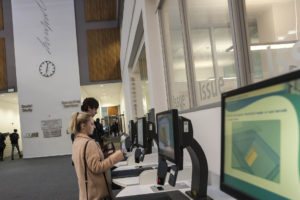How you'll learn
Our programmes are taught using a balanced mix of lectures, workshops, seminars and tutorials and practical laboratory sessions. Students are encouraged to work in small groups from the beginning of the programme. The year three research project is done either individually or in small groups.
How you're assessed
The modules in each year must be passed in order to progress to the next year of study. The final degree classification is calculated from grades obtained in years two and three. The weighting between second and third years is 30/70%. Assessed work, including essays, presentations, group work, and qualitative and experimental reports, together with examination results contribute to the final degree classification.
Liverpool Hallmarks
We have a distinctive approach to education, the Liverpool Curriculum Framework, which focuses on research-connected teaching, active learning, and authentic assessment to ensure our students graduate as digitally fluent and confident global citizens.
The Liverpool Curriculum framework sets out our distinctive approach to education. Our teaching staff support our students to develop academic knowledge, skills, and understanding alongside our graduate attributes:
- Digital fluency
- Confidence
- Global citizenship
Our curriculum is characterised by the three Liverpool Hallmarks:
- Research-connected teaching
- Active learning
- Authentic assessment
All this is underpinned by our core value of inclusivity and commitment to providing a curriculum that is accessible to all students.







